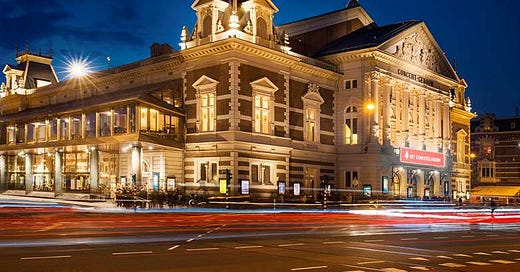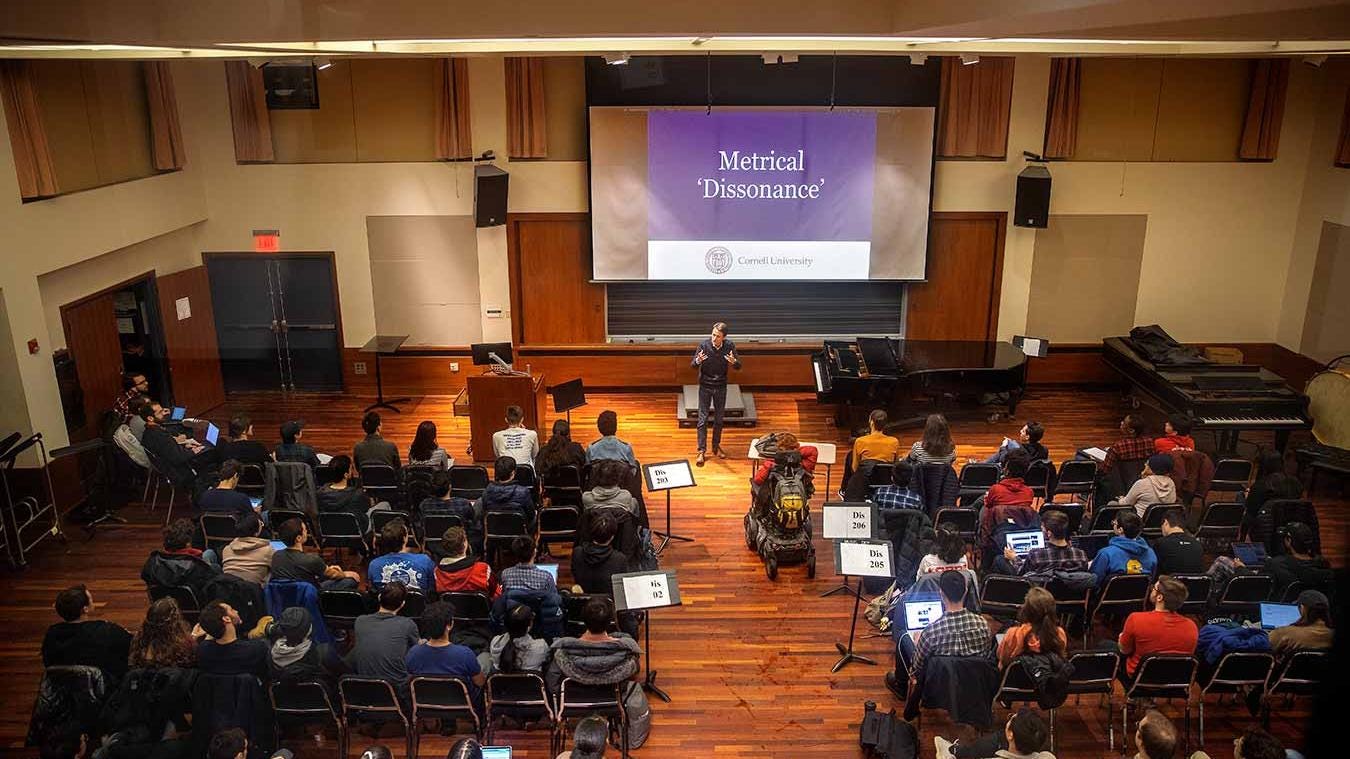Name That Tune
This week’s Name That Tune is a Joey Special. Here’s your hint: This piece was written in the same year that Schoenberg’s Pelleas und Melisande premiered in Vienna. No Googling!
As always, your goal is to provide as much accurate analysis as possible. First try to get the nationality, year, and genre, then make educated guesses about the composer and — if possible— the piece. If you know the piece immediately, send us an email at toneprose@substack.com instead of commenting so the rest of us can have fun guessing.
Last Week’s Results
Tone Prose 88
Puccini, La Rondine: “Bevo al tuo fresco sorriso”
Congratulations to all of you — there was nary an incorrect answer in the large bunch that we got this week. Naturally, Listener Marcello, fresh off a gig conducting this very piece, was able to write in with not only the composer and the piece, but even the exact recording.
Listener Kevin got it down to the name of the aria. Listener Laurie weighed in immediately with Puccini, and narrowed down the opera quite a bit. First Mate Joey and Listener Gregor named Puccini but thought I (Will) might be pulling a schwindl. But I wasn’t — it was just easy! Those two hedged their bets by also listing Ponchielli, Mascagni and Giordano.
Think you can stump your fellow Listeners? Go ahead and try!
Head to our Google Form to upload a 30-second clip of an unidentified piece of classical music for us to try to identify.
Protest! At the Concertgebouw
Gramophone reports that the Concertgebouw in Amsterdam has canceled to performances by the Israeli String Quartet due to security concerns:
An initial statement issued by the venue earlier today said: 'In order to ensure the safety of our employees, visitors and musicians, The Concertgebouw has chosen not to allow the Jerusalem Quartet's concerts to take place on May 16 and 18. The Concertgebouw has come to this decision because of announced demonstrations and the recent developments surrounding protests in Amsterdam.'
The decision attracted condemnation from leading figures in the music community, with pianist Danny Driver launching a petition calling for the decision to be overturned and accusing the venue of 'pure moral cowardice'. It has subsequently attracted the support of many leading artists and already reached 4500 signatures.
As you can imagine, this decision has generated a level of debate that is rather fearsome by the normal standards of classical music.
I (Will) will just mention that a similar situation happened here in Seattle not long ago: the Israeli Chamber Project performed a concert on the campus of the University of Washington last month, and during which students protested (peacefully) outside. Not that this would have (or should have) dissuaded any protesters, but it’s interesting to note that the ICP concert featured a Lebanese tenor and the world premiere of a work by an Iranian composer.
The Ink that Bach Used
If you’re looking to have your nerves soothed, I would recommend the YouTube channel of Joost Witte, a Dutch musician and calligrapher who shares his love of Bach’s music by making videos in which he copies out Bach manuscripts using period replicas of Baroque quills and inks.
Witte’s calm, highly accented narration makes for a beautiful ASMR-ish background, and in fact, the videos are only marred by the inclusion of music, since he uses some pretty tinny MIDI renderings to illustrate musical examples. Thankfully these are few and far between.
GSIM
I (First Mate Joey) and Listener Rebecca recently co-chaired a conference for graduate students in music, hosted at the CUNY Graduate Center. Fittingly, the conference is called the Graduate Students in Music (GSIM) conference, and 2024 represented its 27th annual iteration. Any graduate student who is researching topics related to music can submit a proposal to GSIM, and a committee of CUNY Music students reads and votes on these anonymized proposals, like any other academic conference. A keynote speaker, Dr. Kristi Hardman from UNC Charlotte, was chosen to give a talk on ethics in music theory.
GSIM is known (well… known among East Coast music academia) for its wide-reaching topics, and this year was no exception. A taste of the topics can be found below:
construction of musical identity in Yoruba art music
the relationship of young artist management and young Asian performers
hidden queerness in 2000’s emo music
maximalism in heavy metal and electronic music
how the Elektra chord (of Richard Strauss) resolves
guitar-based music theory in 17th century Iberia
women and nonbinary luthiers in South America
timbral analysis of music by Zhou Long
topic theory in video game music
To peruse the abstracts for these and other paper presentations, check out the program.
Preparing a conference is not terribly fun. In fact, administration is deeply unrewarding, and for good reason. Compare it to performing, as an example: in performing, you spend hours of soul-nourishing practice and rehearsals with beautiful music, preparing for a public presentation. If all goes well, your audience claps a lot for you, and tells you how great you are afterward. In administration, you spend hours of soul-crushing late nights finding funding, making minute program edits, and sending emails after emails, preparing for the conference days. If all goes well, everyone claps for the presenters, eats the catered food, and leaves as soon as they’re no longer interested. It’s a thankless job, bureaucracy — no wonder administration pays!
Of course, that is all a caricature. It was very fulfilling to put on this conference, and I finished the weekend with an opened mind, and lots of musical thoughts that I didn’t have before.
Tone Praise
Augusta Holmès, La nuit et l’amour
I (Will) heard this piece on a concert this past weekend, and though I had enjoyed recordings of it in the past, hearing it live, I found it newly enchanting.
I also learned that this is one movement of a ginormous work for chorus, orchestra, and narrator titled Ludus Pro Patria, and that the rest of the piece has been lost. I hope people are out there scouring the archives, because that would be a major find!
Tone Prose is a co-production of William White, Joseph Vaz, and the Listeners (i.e. you.)






Apologies also for the wrong NTT: Use this link to hear the correct excerpt.
https://drive.google.com/file/d/1l0eJl--kow_88DG_bRkKZ4AGm7CZfAX7/view?usp=drivesdk
Sorry for the late posting today — I (Will) mixed up AM and PM on the Substack app!